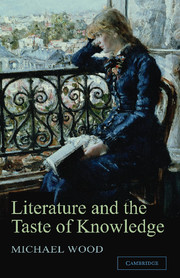Epilogue: The essays of our life
Published online by Cambridge University Press: 22 September 2009
Summary
There is a haunting passage in The Man Without Qualities where Musil gives us his precise and slightly melancholy definition of what he calls essayism. He has been arguing that there is something fantastic about the scientific attention to contemporary facts, and something pedantic about the humanistic attention to age-old fantasies: an intricate rehearsal of the Two Cultures debate. ‘For what are we to do on the Last Day, when the works of humankind are weighed, with three treatises on formic acid, or even thirty? On the other hand, what do we know about the Last Day, if we don't even know what can be done with formic acid between now and then?’ Musil's character Ulrich at first tries to negotiate these (and other) questions through the concept of ‘hypothetical life’: ‘the present time is nothing but a hypothesis we have not yet got beyond’. Later he settles on the notion of the essay. ‘Roughly as an essay … takes a thing from many sides without grasping it whole … he thought he could best see and respond to the world and his own life.’ But isn't such a theory just an expression of insecurity? Musil allows for this possibility, but mischievously adds that ‘insecurity is … nothing but the insufficiency of the usual securities’. An essayist manages to stay close to the ‘mobility of facts’ – and also get beyond the treatise on formic acid.
- Type
- Chapter
- Information
- Literature and the Taste of Knowledge , pp. 188 - 190Publisher: Cambridge University PressPrint publication year: 2005



